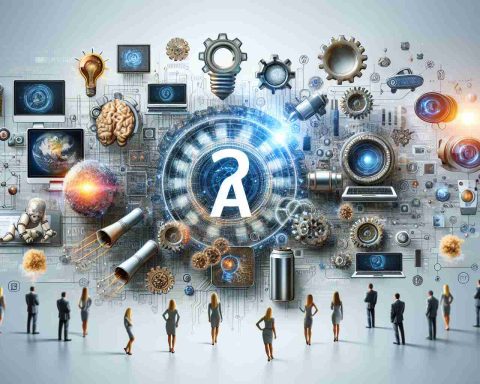A Cutting-Edge Initiative in AI Development
A recent symposium showcased the inauguration of a pioneering institute dedicated to the standardization of artificial intelligence technologies. The institution aims to expedite the formulation of industry standards related to embodied intelligence, particularly in sectors like robotics and autonomous driving, fostering broader applications in various verticals.
Groundbreaking Research Focus
Located in Beijing, the hub of this groundbreaking development, the AI Standardization Research Institute will focus on a comprehensive study of cutting-edge AI technology, industry-specific applications, and risk mitigation strategies. Research areas will span fundamental infrastructure to crucial technologies, including computing power, algorithms, and data analysis. Furthermore, the institute will delve into social governance risks arising from AI advancements, ethical considerations, and access control to ensure the safety, reliability, and controllability of artificial intelligence.
Support and Collaboration
The institute seeks to collaborate with industry partners, providing a one-stop platform for data resources, algorithm models, testing, key standards, and industry solutions in the realm of AI.
Additionally, it will guide enterprises in participating in the development of AI standards at various levels – international, national, industry-specific, and within organizations – to support the creation and implementation of benchmark projects in AI technologies.
Through these collective efforts, the institute hopes to drive innovation, address common challenges in the field, and propel the standardization of AI in the robotics and autonomous driving sectors, leading to widespread adoption across diverse industries.
Advancements in Artificial Intelligence Standardization Unveiled
Innovative Approaches to AI Standardization
In parallel to the establishment of the AI Standardization Research Institute in Beijing, recent collaborations between industry leaders and regulatory bodies have further propelled initiatives in developing international frameworks for artificial intelligence standardization. These efforts aim to harmonize approaches to AI governance globally and streamline the integration of AI technologies across borders.
Critical Questions in AI Standardization
1. How can stakeholders ensure transparency and accountability in AI decision-making processes?
2. What mechanisms can be implemented to address data privacy concerns in standardized AI applications?
3. Are there societal implications to consider when setting international standards for AI technologies?
Key Challenges and Controversies
One of the primary challenges in AI standardization revolves around striking a balance between promoting innovation and ensuring ethical AI development. Controversies often arise surrounding issues of bias in AI algorithms, data security and protection, and the potential socio-economic impacts of widespread AI adoption. Additionally, questions persist around the adaptability of standardization frameworks to rapidly evolving AI technologies and the need for continuous updates to keep pace with advancements.
Advantages and Disadvantages of Standardization
Advantages:
– Streamlining interoperability and compatibility among AI systems.
– Enhancing trust and reliability in AI technologies through established standards.
– Facilitating global collaboration and knowledge sharing in AI research and development.
Disadvantages:
– Inhibiting innovation by potentially stifling diverse approaches to AI development.
– Struggling to accommodate the varied regulatory environments across different countries.
– Delaying the implementation of new AI advancements due to lengthy standardization processes.
For more information on recent advancements in AI standardization and related topics, visit Standardization Domain.

















